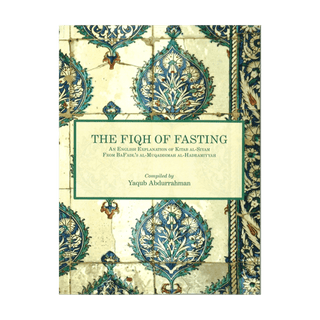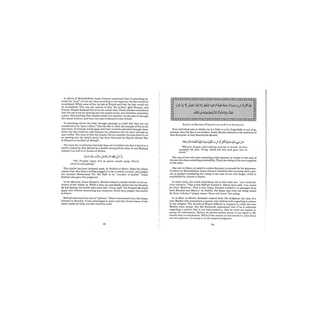About The Book
In the Qur’an Allah says, “Fasting is prescribed for you, just like it was prescribed for those before you, that you may become pious.” - (2:183)
Fasting is one of Islam’s five pillars, and thus, it is a very significant devotional act in the life of every Muslim. Once a year, the Muslims who are able observe this sacred duty. Fasting during the month of Ramadan is an act by which its correct performance draws one near to the Creator, the Almighty Lord of the Worlds. Knowing how to perform this ritual is of utmost importance.
The Fiqh of Fasting is an explanation of Kitab al-Siyam from ‘Abd Allah b. 'Abd al-Rahman BaFadl's Masa'il al-Ta'lim. This book brings forth some of the most important legal issues on the topic of fasting. The explanation takes from the Shafi'i Madhhab's relied-upon reference works, such as Ibn Hajar’s Tuhfah, Ramli’s Nihayah, and others. Along with citing from the fiqh books, many source evidences are presented.
This book features typeset in Linotype’s Century Expanded, and the Arabic is in Lotus. It is printed on premium white FSC accredited paper.
About The Book
In the Qur’an Allah says, “Fasting is prescribed for you, just like it was prescribed for those before you, that you may become pious.” - (2:183)
Fasting is one of Islam’s five pillars, and thus, it is a very significant devotional act in the life of every Muslim. Once a year, the Muslims who are able observe this sacred duty. Fasting during the month of Ramadan is an act by which its correct performance draws one near to the Creator, the Almighty Lord of the Worlds. Knowing how to perform this ritual is of utmost importance.
The Fiqh of Fasting is an explanation of Kitab al-Siyam from ‘Abd Allah b. 'Abd al-Rahman BaFadl's Masa'il al-Ta'lim. This book brings forth some of the most important legal issues on the topic of fasting. The explanation takes from the Shafi'i Madhhab's relied-upon reference works, such as Ibn Hajar’s Tuhfah, Ramli’s Nihayah, and others. Along with citing from the fiqh books, many source evidences are presented.
This book features typeset in Linotype’s Century Expanded, and the Arabic is in Lotus. It is printed on premium white FSC accredited paper.


